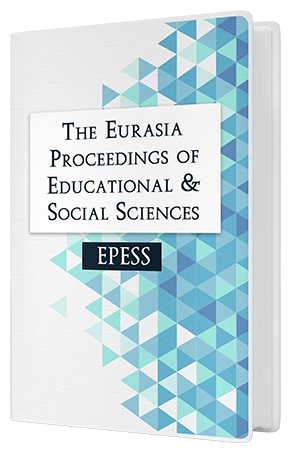COMPARISON OF STUDENTS’ LEARNING AND ATTITUDES IN TECHNOLOGY SUPPORTED AND LABORATORY BASED ENVIRONMENTS
Keywords:
Learning, attitude, technology, laboratory, scienceAbstract
This research study aimed to compare students’ conceptual knowledge and attitudes towards physics lesson who were separately taught with three different methods. The main research question was as follows: Are there significance differences among technology supported teaching, laboratory-based teaching, and curriculum-based teaching in terms of students’ learning and attitudes? True experimental design was carried out for this research. The participants of this study were 144 9th grade students studying in an all-boys state high school. The students who were in the technology supported classroom constituted the first experimental group while the students in the laboratory based classroom comprised the second experimental group. There was also one control group whose students were taught based on the curriculum. Each group had 48 students. The teacher of three groups was the same. Data were collected in the physics lessons. The students’ conceptual learning was assessed with the help of "Force and Motion Achievement Test". This test was applied before and after the treatment with an eight-week time difference. In order to determine any change in the students’ attitudes towards physics lesson, "Physics Lesson Attitude Scale" was used. Effect sizes were calculated for the changes in students’ knowledge and attitudes. Findings showed significant differences between the experimental groups and control group. In other words, when technology or laboratory approach was embedded in the instruction, the students became better learners and their attitudes increased. Results also presented no significant differences between the experimental groups.Downloads
Published
Issue
Section
License
Copyright (c) 2017 The Eurasia Proceedings of Educational and Social Sciences

This work is licensed under a Creative Commons Attribution-NonCommercial-ShareAlike 4.0 International License.
The articles may be used for research, teaching, and private study purposes. Any substantial or systematic reproduction, redistribution, reselling, loan, sub-licensing, systematic supply, or distribution in any form to anyone is expressly forbidden. Authors alone are responsible for the contents of their articles. The journal owns the copyright of the articles. The publisher shall not be liable for any loss, actions, claims, proceedings, demand, or costs or damages whatsoever or howsoever caused arising directly or indirectly in connection with or arising out of the use of the research material. All authors are requested to disclose any actual or potential conflict of interest including any financial, personal or other relationships with other people or organizations regarding the submitted work.




